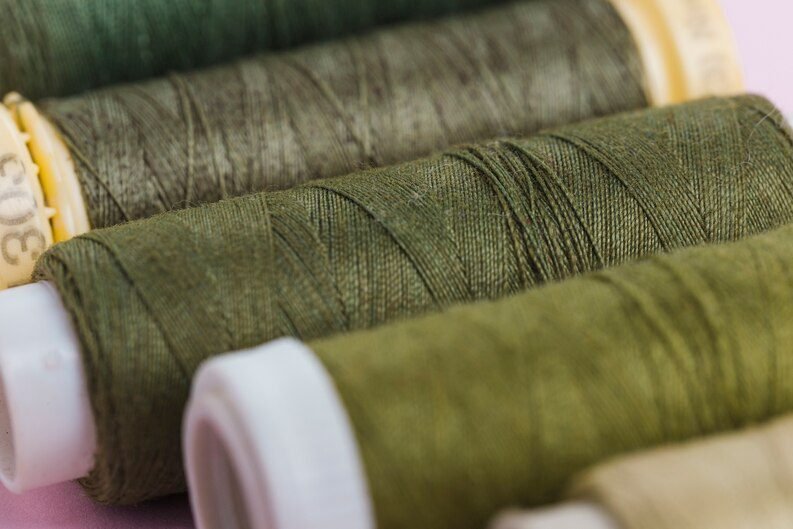Introduction
As the world shifts towards more sustainable practices, the textile industry is making significant strides in adopting environmentally friendly solutions. Green textile solutions are at the forefront of this transformation, offering innovative ways to reduce environmental impact while delivering high-quality products. At MK Textile Corp, we are dedicated to leading the way in green textile solutions, providing our clients with sustainable options that align with their values and contribute to a healthier planet.


What Are Green Textile Solutions?
Green textile solutions refer to practices, materials, and technologies that minimize the environmental impact of textile production and use. These solutions encompass a wide range of approaches, from using sustainable raw materials to implementing eco-friendly manufacturing processes and adopting circular economy principles. The goal of green textile solutions is to create textiles that are not only high-performing and aesthetically pleasing but also environmentally responsible.
Key Components of Green Textile Solutions
- Sustainable Materials: Using raw materials that are renewable, biodegradable, or recycled to reduce the reliance on non-renewable resources and minimize waste.
- Eco-Friendly Manufacturing Processes: Implementing practices that reduce water and energy consumption, minimize chemical use, and lower carbon emissions during textile production.
- Circular Economy: Designing textiles with end-of-life considerations in mind, encouraging recycling, and promoting the reuse of materials to extend the lifecycle of products.
- Low-Impact Dyeing and Finishing: Employing techniques that reduce the environmental impact of dyeing and finishing processes, such as using natural dyes or closed-loop water systems.
Benefits of Green Textile Solutions
Adopting green textile solutions offers numerous advantages, not only for the environment but also for businesses and consumers.
Environmental Impact Reduction
Green textile solutions significantly reduce the environmental footprint of textile production. By using sustainable materials and eco-friendly processes, these solutions help conserve resources, reduce pollution, and lower greenhouse gas emissions. For example, using organic cotton instead of conventional cotton helps reduce water consumption and eliminates harmful pesticide use.
Enhanced Brand Reputation
Incorporating green textile solutions into your product line can enhance your brand’s reputation and appeal to environmentally conscious consumers. As awareness of environmental issues grows, consumers are increasingly seeking out brands that prioritize sustainability. By offering green textiles, you can differentiate your brand in the market and build stronger connections with your customers.
Long-Term Cost Savings
While the initial investment in green textile solutions may be higher, the long-term cost savings are substantial. Eco-friendly practices often lead to reduced energy and water consumption, lower waste disposal costs, and fewer regulatory compliance issues. Additionally, as sustainable practices become more mainstream, the cost of green technologies and materials is expected to decrease.
Improved Product Quality
Green solutions often lead to higher-quality products. Sustainable materials, such as organic cotton and recycled fibers, can offer superior performance and durability compared to conventional alternatives. Additionally, green manufacturing processes can result in textiles that are safer for both consumers and workers, as they often involve fewer harmful chemicals and safer working conditions.
MK Textile Corp’s Green Textile Solutions
At MK Textile Corp, we are committed to advancing textile solutions through innovation and sustainability. Our approach involves integrating eco-friendly practices into every aspect of our operations, from material selection to production and beyond. Here’s how we are making a difference:
- Sustainable Material Sourcing: We prioritize sourcing materials that are certified organic, recycled, or otherwise environmentally friendly. This ensures that our products contribute to a more sustainable supply chain.
- Eco-Friendly Production: Our manufacturing processes are designed to minimize waste, reduce water and energy consumption, and lower emissions. We use advanced technologies to enhance efficiency and reduce our environmental impact.
- Circular Economy Initiatives: We are dedicated to promoting circular economy principles by designing products with recyclability and reuse in mind. Our take-back programs and recycling initiatives help extend the lifecycle of our textiles.
- Innovative Dyeing and Finishing: Our dyeing and finishing processes utilize low-impact methods and sustainable practices, such as natural dyes and closed-loop water systems, to minimize environmental impact.
The Future of Green Textiles
The future of textiles lies in embracing sustainability and adopting green solutions. As technology advances and consumer demand for eco-friendly products grows, the textile industry will continue to evolve towards greener practices. At MK Textile Corp, we are excited to be part of this journey and remain dedicated to pushing the boundaries of sustainable textile innovation.
By choosing textile solutions, businesses and consumers can contribute to a more sustainable world while enjoying high-quality, environmentally responsible products. Together, we can create a future where textiles not only meet our needs but also support the health of our planet.
Conclusion
Green textile solutions represent a pivotal shift towards sustainability in the textile industry. By incorporating eco-friendly materials, processes, and practices, these solutions help reduce environmental impact and promote a circular economy. At MK Textile Corp, we are proud to offer a range of green textile solutions that align with our commitment to sustainability and innovation. Embrace the future of textiles with us and make a positive impact on the environment, one green solution at a time.

